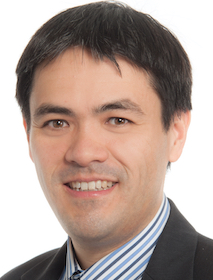Pivotal ERIVANCE basal cell carcinoma (BCC) study: 12-month update of efficacy and safety of vismodegib in advanced BCC. Sekulic A, Migden MR, Lewis K, Hainsworth JD, Solomon JA, Yoo S, Arron ST, Friedlander PA, Marmur E, Rudin CM, Chang AL, Dirix L, Hou J, Yue H, Hauschild A; ERIVANCE BCC investigators. J Am Acad Dermatol. 2015 Jun;72(6):1021-1026.e8. doi: 10.1016/j.jaad.2015.03.021.
- Basal Cell Carcinoma (BCC) is a non-melanoma skin cancer (NMSC)
- It is the most frequent of skin cancer and is linked to chronic accumulated sun exposure.
- It is not commonly an aggressive skin cancer but it can be locally invasive. It is normally treated by excision (surgery) or radiation therapy.
- In cases where it is not operable (advanced, contraindications), recurring or in rare cases metastasizing, it can be treated with oral vismodegib:
- it is a hedgehog pathway inhibitor (this pathway has been shown to be alteread in BCC (thanks to the study of Basal Cell Nevus Syndrome (Gorlin Syndrome)
- it is given orally at a dose of 150mg/d until disease progression (positive or negative) or side-effects
- Adverse events (AE) in decreasing order include: muscle spasms (in around 2 thirds of cases), altered taste (dysguesia), hair loss (alopecia), weight loss, nausea, fatigue, loss of appetite, diarrhea
Its effect was measured with the ERIVANCE BCC study and in this paper (Sekulic et al), an additional 12 months following treatment is provided:
- in total, 104 patients were exposed for 12.9 months on average
- follow-up period is 22.4 months for metastatic BCC (mBCC) and 21.7 months for locally advanced BCC (laBCC)
- 33 with (mBCC)
- 71 with with (laBCC)
- response rate occurs in around:
- one third (33%) of mBCC cases
- half (47.6%) of laBCC cases
- 29 patients were still receiving treatment:
- 7 with mBCC
- 22 with aBCC
- 75 patients (51 at last study) had discontinued treatment for the following reasons:
- mBCC: disease progression (14), adverse events (4) and patient decision (4)
- laBCC: patient decision (18), adverse events (12), disease progression (11)
To conclude the safety profile is acceptable given the indication of treating advanced or metastatic BCC.
Comment: there was a lot of research on the alteration of the Sonic Hedgehog Pathway in BCC and it is worthy of note that vismodegib made it from the reasearch labs to clinics.
However we could ask if this molecule will replace classical BCC treatments such as surgery ?….the answer is still no.
Article selection: Prof Dr Jean-Hilaire Saurat – dermatologist. Geneva, Switzerland




 +41 22 738 18 48
+41 22 738 18 48